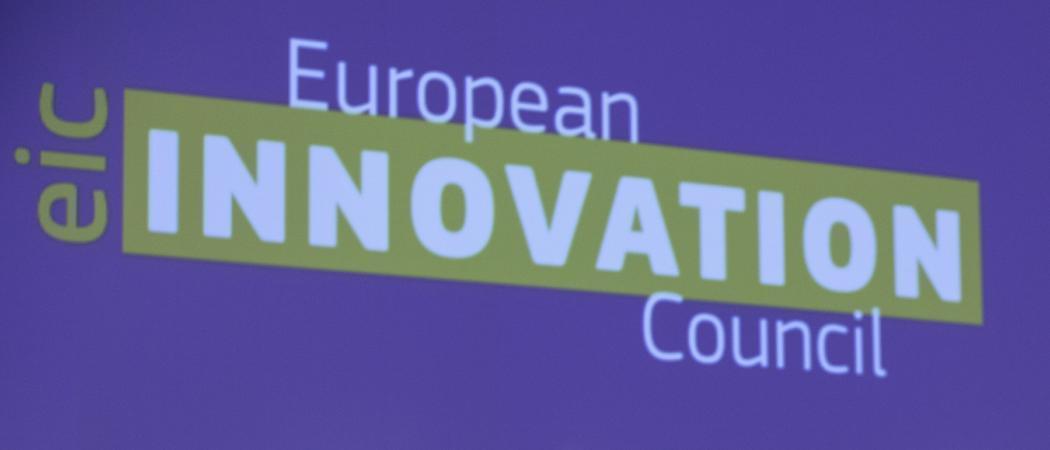After a three-year pilot phase, the EIC emerges fully formed, with €1.5B to invest in innovation this year and calls for proposals launching today

After its three-year pilot, the European Innovation Council (EIC) finally launched as a full-fledged €10 billion agency on Thursday, kicking off with three calls worth a total €1.5 billion.
EIC will provide both grant funding and direct investment for start-ups through its €10 billion equity fund, with the aim of supplying the capital to translate Europe‘s world leading science through to market.
“We, Europeans, are excellent [at] making science with money. But we are not so good [at] making money out of science,” Commission president Ursula von der Leyen said. “The new European Innovation Council is there to help resolve this paradox,” she said at the launch.
The €10 billion sounds like a lot of money but more funding is needed to match the ambition, said Christian Ehler, MEP and rapporteur for the Horizon Europe research programme, of which EIC is part. Success rates have been as low as 2% for some of the calls in the pilot phase. “It’s a thirsty new crowd, but it will be a successful crowd.”
EIC is the brainchild of the previous EU research commissioner, Carlos Moedas. But the concept of a new funding body with new needs within the EU research programme was a nightmare for traditional Commission administrators, and the idea was met with a lot of scepticism and unfavourable media coverage at first, Ehler noted.
But discussions continued, and after funding over 5,000 SMEs and innovation projects in its pilot phase, EIC is now ready for business.
There is a slight qualification, in that Horizon Europe is still awaiting approval by the Parliament. EIC can launch calls thanks to a legal clause that allows a retroactive start to the programme: up to official approval in April, EIC can accept and evaluate proposals. But grant agreements cannot be signed, and no money will flow until Horizon Europe is adopted by MEPs.
From 1 April, EIC will be merging with the Executive Agency for Small and Medium-sized Enterprises, which manages the EU’s SME support programmes, to form EISMEA (European Innovation Council and SMEs).
This new agency, headed by the current chief of the EIC taskforce, Jean-David Malo, will distribute grant funding on behalf of the EIC, while equity investments will continue to be managed by the EIC Fund, launched last summer.
The EIC could see itself playing a strategic role in the EU quest for technology sovereignty, having the right in certain cases, to buy golden shares in companies, to outvote foreign investors.
But EU research commission Mariya Gabriel said the EIC is not a political tool. “If there are some priorities to fix, it’s not political priorities, it’s European priorities,” she said.
First calls
The first EIC calls and the work programme setting the agenda for the next year are now out. “Today, we don’t just cut ribbons. We get down to business and launch the first calls,” said von der Leyen.
Start-ups looking for funding will be able to submit short pitches at any time and, if successful, will be invited to submit full applications by 9 June or 6 October 2021.
There is a total of €592.5 million this year for start-ups, with an additional €495.1 million for challenge-driven targeted calls in certain areas of health, digital technology and green deal innovations.
The Pathfinder, which funds high-risk projects with breakthrough potential, will accept applications for research in any field until 19 May. A total of €168 million will be awarded in grants of up to €3 million in this bottom-up, open, call.
For the bottom-down call, there is €132 million for research consortia to apply for grants of up to €4 million by 27 October. The Pathfinder sets out five challenges:
-
Awareness inside (projects scrutinising the idea of artificial intelligence consciousness);
-
Tools to measure and stimulate activity in brain tissue;
-
Emerging technologies in cell and gene therapy;
-
Novel routes to green hydrogen production;
-
Engineered living materials.
The work programme also introduces Transition grants for translating EU-funded research to market.
There is €59.6 million for the bottom-up call and €40.5 million for innovation targeting medical devices and energy harvesting and storage technologies.
The projects must build on previous EIC Pathfinder or European Research Council proof-of-concept projects. Researchers, SMEs and small consortia can request up to €2.5 million.





 A unique international forum for public research organisations and companies to connect their external engagement with strategic interests around their R&D system.
A unique international forum for public research organisations and companies to connect their external engagement with strategic interests around their R&D system.